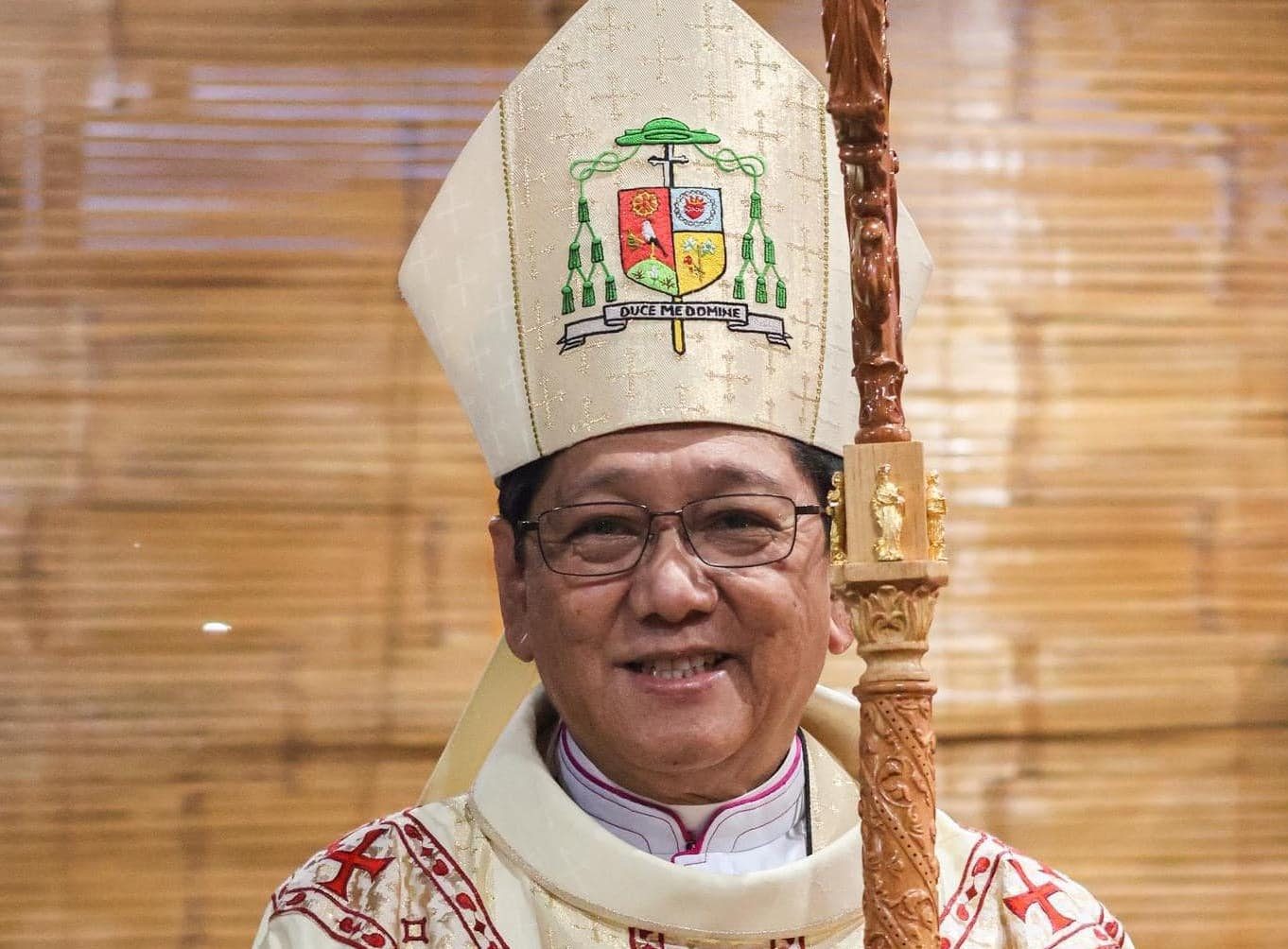SUMMARY
This is AI generated summarization, which may have errors. For context, always refer to the full article.

NEGROS OCCIDENTAL, Philippines – Just two days after President Ferdinand Marcos Jr. said in Bacolod City that he was inclined to sign into law the Negros Island Region (NIR) bill, the Diocese of Dumaguete in the province of Negros Oriental on Wednesday, April 10, issued an “open letter’ for the president to veto it.
Posted April 10 on the social media account of the Diocese of Dumaguete, the “open letter pertaining to the proposal to create” NIR, mentioned a two-page document sent to the President on March 25 and signed by Dumaguete Bishop Julito Cortes and eight other prelates in Negros Oriental.
(Editor’s note: Earlier editions of this article said “eight other prelates” signed the document sent to President Marcos. Bishop Julito Cortes is the only Catholic bishop in Negros Oriental. This has been corrected.)
“Our plea is not born of mere dissent, but rather from a sense of duty to safeguard the future of our beloved province,” wrote Dumaguete’s top clergy in the March 25 letter to Marcos.
Cortes made the Dumaguete clergy’s correspondence public in an open letter pending Marcos’ reply, “so that the public will be aware about such a bill and its serious implications to their lives.” The bishop previously said that the NIR is an “insult to the people of Negros Oriental.”
That document stated the opposition of the Catholic clergies to the approved Senate Bill 2507, recreating NIR and now including the province of Siquijor, stating the proposed law did not consult the NegOrenses and the Siquijor people as well.
“Regretably, the passage of bill was marked by lack of comprehensive information dissemination and meaningful consultation with diverse sectors and stakeholders in Negros Oriental,” said Cortes. He added: “the voice of the people was not heard.”
They said the proposed recreation of NIR with Siquijor remains unclear to the general public in Negros Oriental.
“With heavy heart, we must implore your excellency to consider vetoing it,” read portion of the appeal to the president.
Marcos said on Monday, April 8, that the creation of NIR was “probably a good idea” that could expedite the delivery of services to the people of Negros and said that once the bill is transmitted to Malacañang he is inclined to sign it into law.
But for Negros Oriental prelate the creation of NIR threatens to exacerbate inequalities, as Negros Oriental finds itself disadvantaged by its fewer districts and cities compared to Negros Occidental.
Negros Occidental has six congressional disricts, one highly-urbanized city and 13 component cities while Negros Oriental has only three congressional districts and six cities.
Siquijor, on the other hand, has one congressional district and has no city.
This asymmetry in representation and resource allocation, said the Dumaguete clergy could perpetuate systemic injustice, further marginalizing the vulnerable communities.
They cited a 2014 survey conducted by Silliman University in Dumaguete City regarding the proppsed merger and it showed that 43.34% of NegOrenses were not in favor of NIR, 25.83% were okay while 30.83% were undecided yet.
They said that this apprehension underscores the imperative for thorough deliberation and inclusive decision-making process.
The Negros Oriental church leaders raised to Marcos the perplexing inclusion of Siquijor in NIR despite its distinct identity, language and geographical separation from Negros.
Likwise, they said, the omission of public consultation among the Siquijor people further cement their move to appeal for the immediate junking of the NIR bill before it is signed into law.
Currently, Negros island’s two provinces belong to different regions: Negros Occidental is under Western Visayas, which is based in Iloilo City; while Negros Oriental is part of Central Visayas, based in Cebu City.
Meanwhile, the opposition raised by the Diocese of Dumaguete against the proposed recreation of NIR rekindled the proposed controversial split of Negros Occidental into two provinces – the Negros del Norte and Negros del Sur 38 years ago.
Though the controversial split had already approved pursuant to Batas Pambansa Bilang 885 signed by the late President Ferdinand E. Marcos, still, the Supreme Court, in its July 11, 1986 en banc decision, junked the statute with almost the same tune of opposition laid down by the Diocese of Dumaguete.
The Diocese of Dumaguete covers 21 of the 25 cities and municipalities of Negros Oriental and the entire province of Siquijor. The population of Catholics in this area stands at 1.3 million.
As of press time, no Negros Occidental and Oriental officials are available for comment yet.
Rappler will update this story once the key officials in the twin provinces give their comments. – with reports from Robbin M. Dagle/Rappler.com
Add a comment
How does this make you feel?
![[The Wide Shot] Peace be with China](https://www.rappler.com/tachyon/2024/07/wideshot-wps-catholic-church.jpg?resize=257%2C257&crop=311px%2C0px%2C720px%2C720px)
![[OPINION] A critique of the CBCP pastoral statement on divorce](https://www.rappler.com/tachyon/2024/07/TL-cbcp-divorce-statement-july-19-2024.jpg?resize=257%2C257&crop=285px%2C0px%2C722px%2C720px)


![[The Wide Shot] Was CBCP ‘weak’ in its statement on the divorce bill?](https://www.rappler.com/tachyon/2024/07/cbcp-divorce-weak-statement.jpg?resize=257%2C257&crop=258px%2C0px%2C719px%2C720px)










![[REFLECTION] Mary, Mother of the West Philippine Sea](https://www.rappler.com/tachyon/2024/07/may-mother-west-ph-sea-july-19-2024.jpg?resize=257%2C257&crop=293px%2C0px%2C751px%2C750px)
![[OPINION] Ignorance and prejudice](https://www.rappler.com/tachyon/2024/07/tl-ignorance-and-prejujdice.jpg?resize=257%2C257&crop_strategy=attention)










There are no comments yet. Add your comment to start the conversation.